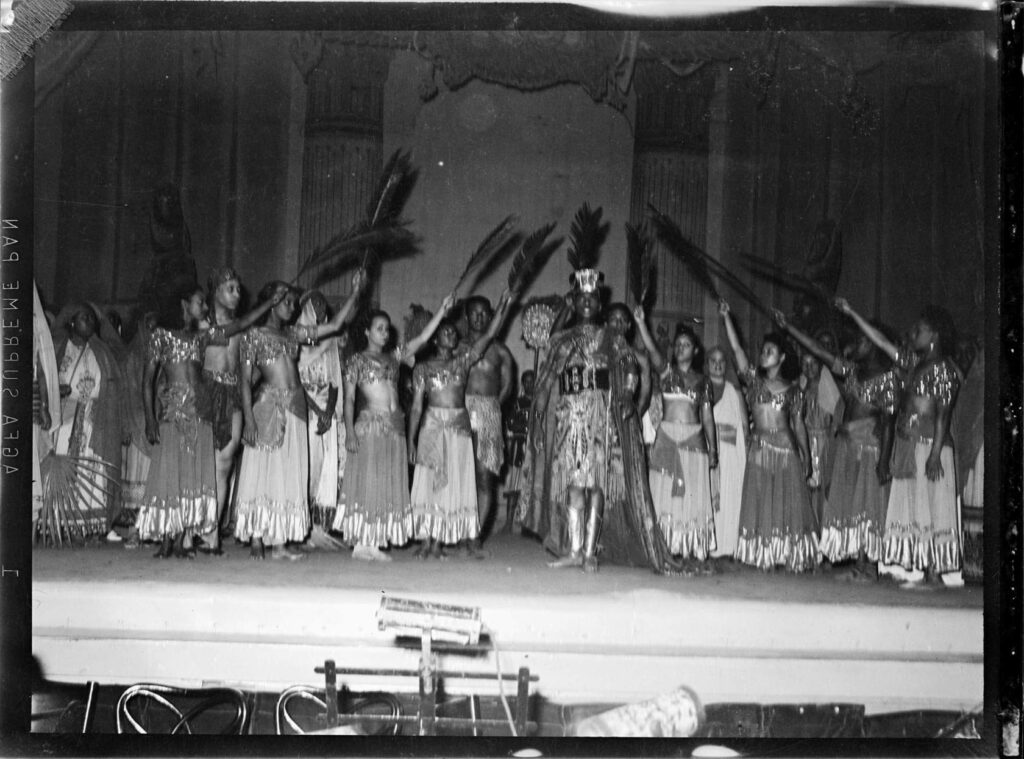“Open Wide the Door” is the first museum exhibit about Mary Cardwell Dawson and her Groundbreaking National Negro Opera Company
CHARLOTTE, N.C.– This month the Charlotte Museum of History will unveil the first-ever museum exhibit about Mary Cardwell Dawson, a North Carolina native who founded the nation’s first commercially successful Black opera company in 1941.
Born two hours north of Charlotte in Madison, N.C., in 1894, Dawson was a trailblazer in the world of classical music. Her company never performed in her home state due to Jim Crow segregation. But it made its mark nationally by performing in front of integrated crowds and by providing a stage for talented Black performers of the time who went on to break barriers themselves.
The exhibit is the brainchild of Terri L. White, who joined the Charlotte Museum of History in July 2022 as its president and CEO. A native of Pittsburgh—where Dawson founded her opera company—White was familiar with Dawson’s legacy and determined to bring the story to North Carolina.

“Creating this exhibit and premiering it in the state where Mary Cardwell Dawson was born feels like a long overdue homecoming,” said White. “Mary’s contributions to the world of opera were never properly appreciated during her lifetime. The museum is honored to be a part of finally recognizing her visionary legacy here in North Carolina.
“We also hope this exhibit inspires others. Mary was a Black woman from the rural Jim Crow South who went on to have a worldwide influence within a classical art form that was not welcoming to people of color. Her story serves as a beacon of hope to other dream chasers and barrier breakers.”
The new exhibit, titled “Open Wide the Door: The Story of Mary Cardwell Dawson and the National Negro Opera Company,” focuses on Dawson’s immense impact and the legacy of her opera company.
The exhibit includes rarely seen photographs of the company and historical documents, as well as original costumes from the company’s productions. Through videos and audio stations, the exhibit also provides a broader look at the world of opera and the contributions of people of color to the art form.
White says that Dawson’s expansive vision for opera included democratizing the art form by making performances available to more people and by performing in front of integrated audiences.
“Mary insisted that her cast and audiences both be integrated,” White said. “As a result, her company never performed any farther south than Washington, D.C., despite many of the company members hailing from the South. Like other Black artists of the time, these performers left their home states to pursue their dreams where they would be more welcome—a mass exodus of talent that this exhibit acknowledges.”

Performers from the National Negro Opera Company went on to desegregate spaces and to become renowned within classical music, including Robert McFerrin Sr. (Bobby McFerrin’s dad), who was the first Black male soloist with the Met, and La Julia Rhea, who broke the color barrier in Chicago opera at the Civic Opera House in 1937.
The new exhibit is part of a partnership with Opera Carolina, which performed a play with music about Dawson’s life over a three-day run in February. The performances featured superstar mezzo-soprano Denyce Graves, whose foundation commissioned the play, “The Passion of Mary Cardwell Dawson.”
The exhibit is made possible by title sponsor Bank of America and through generous support from the Arts & Science Council, NC Humanities (the state affiliate of the National Endowment for the Humanities) and PRIDE magazine. A few select supporting sponsorships are still available.
How to Go
The museum will host a members-only “first look” event for this exhibit on Friday, March 22. The exhibit opens to the public on Tuesday, March 26, and will be included in regular museum admission. More Information: https://charlottemuseum.org/programs-events/events/members-only-exhibit-preview-event/
The Charlotte Museum of History exists to save and share the Charlotte region’s history, helping create a better understanding of the past and inspiring dialogue about the future. The museum is the steward of the oldest home in Mecklenburg County, the 1774 Hezekiah Alexander Rock House and homesite, as well as the historic Siloam School, both of which are on the National Register of Historic Places. Visit charlottemuseum.org and follow the museum on Facebook, Instagram and Twitter. The museum is an independent 5

